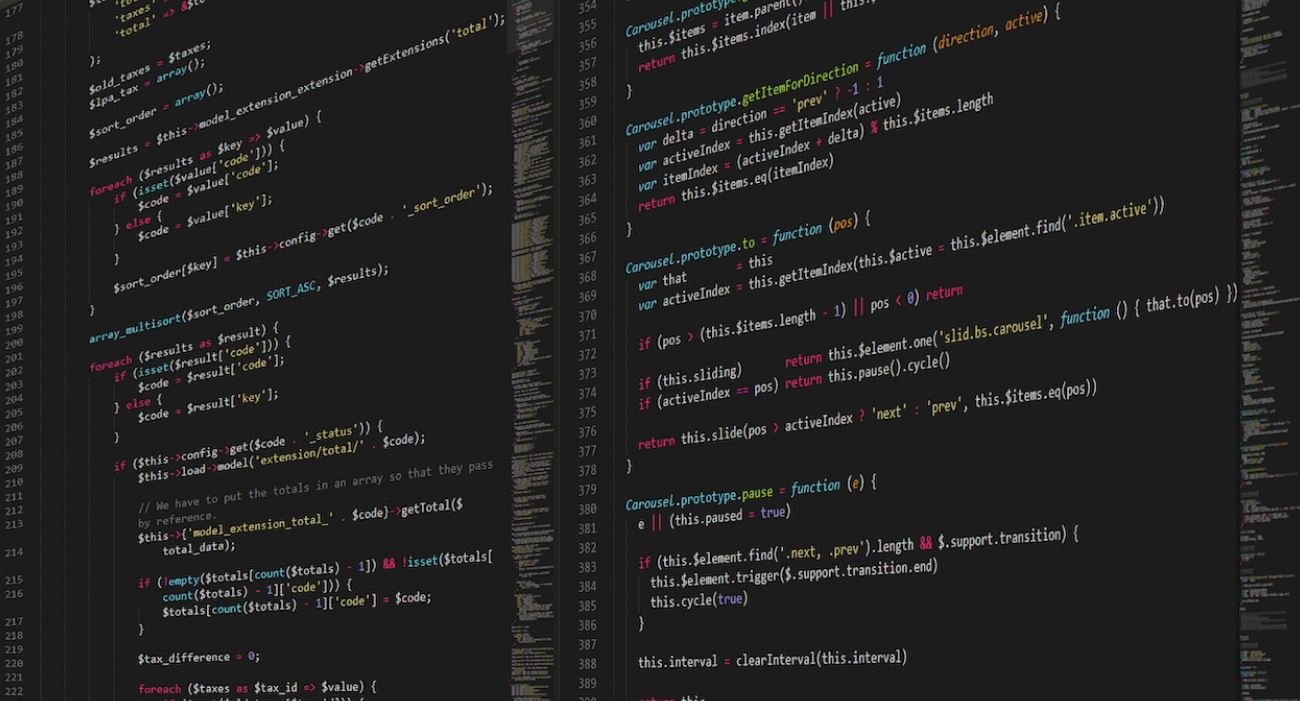How Soon Will AI Take Over?
The rise of Artificial Intelligence (AI) has sparked both excitement and concern among individuals and industries alike. While some envision a future where AI revolutionizes various sectors, others fear the potential consequences of AI dominance.
Key Takeaways:
- Artificial Intelligence is rapidly advancing and has the potential to significantly transform numerous industries.
- While widespread AI takeover is uncertain, gradual integration of AI is already reshaping business processes and customer experiences.
- Concerns about AI replacing human jobs and the ethical implications of AI decision-making algorithms need careful consideration.
Artificial Intelligence has come a long way in recent years, thanks to advancements in machine learning, deep learning, and data analytics. **AI technologies** can now perform complex tasks previously thought to be exclusively human, such as image recognition, natural language processing, and even creative tasks like composing music.*
Today, AI is already integrated into several industries, including healthcare, finance, and transportation. In healthcare, AI is being used for diagnosing diseases, predicting patient outcomes, and drug discovery. *The potential for AI to revolutionize the medical field is enormous, leading to improved patient care and outcomes.*
Financial institutions are leveraging AI for fraud detection, algorithmic trading, and personalized customer experiences. *AI algorithms enable faster and more accurate predictions, enhancing the overall efficiency and security of financial systems.*
The Progression of AI
The progression of AI can be observed in its increasing integration in everyday tasks. From voice assistants like Amazon‘s Alexa to self-driving cars, AI is becoming more prevalent. Alongside this progress, concerns about job displacement and the loss of human decision-making authority have arisen.
| Industry | AI Applications |
|---|---|
| Healthcare | Diagnosis, drug discovery, predictive analytics |
| Finance | Fraud detection, algorithmic trading, personalized customer experiences |
| Transportation | Self-driving cars, smart traffic management |
However, AI is not likely to completely replace humans in the near future. While AI and automation have the potential to disrupt certain job markets, they also create new opportunities for human workers. **Many jobs** require social and emotional intelligence, creativity, and problem-solving skills that AI cannot replicate.
AI’s impact is already visible through the integration of intelligent chatbots and virtual assistants in customer service systems. These AI-powered solutions enhance operational efficiency, provide personalized support, and improve customer experiences.
The Ethical Considerations of AI
As AI systems become more powerful, discussions around ethics and responsible AI deployment are crucial. Organizations must ensure that AI decision-making algorithms are fair, unbiased, and transparent. *The responsibility lies with humans to define the ethical boundaries within which AI operates.*
| Concerns | Considerations |
|---|---|
| Job displacement | Implementing reskilling programs, creating new job opportunities |
| Bias in decision-making | Ensuring fairness and transparency in AI algorithms |
| Security and privacy risks | Implementing robust data protection measures |
In the journey towards AI integration, it is important to strike a balance between the potential benefits and the risks associated with AI advancement. Governments, regulatory bodies, and enterprises need to collaborate to establish guidelines for responsible AI development and deployment.
Looking Ahead
While there is no definitive timeline for AI domination, it is clear that AI will continue to reshape industries and profoundly impact society. **The pace** of AI integration will depend on various factors, including technological advancements, regulatory frameworks, and societal acceptance.
As we move forward, it is crucial to embrace AI’s potential while addressing the challenges it presents. Responsible development, ethical deployment, and thoughtful consideration of the consequences will shape the future of AI. *By harnessing the power of AI wisely, we can create a future where humans and machines collaborate harmoniously for the betterment of society.*

Common Misconceptions
Misconception 1: AI will take over the world in the near future.
- AI has made significant advancements, but it is still far from possessing human-level intelligence.
- The development of AI technology is an ongoing process and requires extensive research and fine-tuning.
- AI is designed to assist human tasks rather than replace human capabilities entirely.
Misconception 2: AI will replace all jobs, leading to high unemployment rates.
- Automation may streamline certain tasks, but it also creates new opportunities and job roles in AI-related fields.
- AI is more likely to augment human work rather than completely eliminate it.
- While certain jobs may become obsolete, new roles requiring human skills and creativity will be created.
Misconception 3: AI will surpass human intelligence and become uncontrollable.
- AI systems, including machine learning models, are designed with strict boundaries and constraints.
- AI technology requires human supervision and guidance to ensure ethical use and prevent unintended consequences.
- The development of AI ethics frameworks and regulations aims to prevent the misuse or loss of control over AI systems.
Misconception 4: AI will develop consciousness and emotions.
- AI, as we know it today, lacks subjective experience and self-awareness.
- Emotions are complex and deeply rooted in human biology, making replication in AI systems highly improbable.
- AI may simulate emotions to some extent for specific purposes, but true emotional understanding is beyond its capabilities.
Misconception 5: AI will make human decision-making obsolete.
- AI systems are not designed to replace human decision-making, but rather to enhance it through data-driven insights.
- Human judgment, experience, and ethical considerations are crucial in making fair and responsible decisions.
- AI can aid in decision-making by providing analysis and recommendations, but the final decisions are ultimately made by humans.

The Rise of Artificial Intelligence
Artificial Intelligence (AI) has rapidly evolved over the years, transforming various aspects of human life. The development of AI promises tremendous advancements across industries, from healthcare to transportation. This article explores the progress made in AI and provides insightful data showcasing its potential impact in the near future.
AI in Healthcare
As AI becomes more sophisticated, its applications in the healthcare sector continue to expand. The below table highlights the number of medical diagnoses made by AI systems compared to human doctors within a span of ten years:
AI in Financial Trading
The integration of AI in financial trading has revolutionized markets and yielded substantial returns for investors. The following table presents the average annual profits, in millions of dollars, generated by AI-based trading systems in various countries:
Driverless Cars in Development
Self-driving cars are increasingly becoming a reality, with various companies investing heavily in their development. The table below reveals the number of autonomous miles driven by major car manufacturers during rigorous testing phases:
Impact of AI on Job Market
AI is predicted to dramatically disrupt the job market, automating several tasks traditionally performed by humans. The subsequent table highlights the estimated percentage of jobs that could be automated across various industries:
AI in Personal Assistants
Personal assistant AI technologies have become integral parts of everyday life, making our tasks more efficient. The following table displays the number of virtual assistant devices sold worldwide over the last five years:
AI in Cybersecurity
With increased reliance on technology, the importance of strong cybersecurity measures cannot be overstated. The table below presents the number of cyber attacks prevented by AI-powered security systems in the past year:
AI in Agriculture
Agriculture can greatly benefit from AI systems, offering insights and optimizing processes for increased productivity. The subsequent table showcases the average crop yield increase achieved through AI-driven farming techniques:
AI in Language Translation
Language barriers are a thing of the past, thanks to the advancements in AI language translation systems. The following table demonstrates the accuracy rate of AI translators compared to human translators in translating various languages:
AI in Social Media
The impact of AI on social media cannot be overlooked. AI algorithms influence the content we see on our feeds. The table below illustrates the percentage of social media posts that are influenced by AI-driven algorithms:
AI in Customer Service
AI-powered customer service chatbots are increasingly becoming the norm, improving user experiences and reducing waiting times. The subsequent table presents the average customer satisfaction rating for interactions with AI chatbots compared to human agents:
In conclusion, as AI continues to advance, its impact on various aspects of society becomes increasingly evident. From healthcare and finance to transportation and agriculture, AI is revolutionizing industries and reshaping the world as we know it. Exciting possibilities lie ahead as AI technology continues to unfold.
Frequently Asked Questions
Question 1
How close are we to AI taking over?
While AI continues to evolve rapidly, experts believe that it is difficult to predict an exact timeline for AI taking over. The development and deployment of advanced AI systems depend on numerous factors, including technological advancements, ethical considerations, and societal acceptance.
Question 2
What areas are AI expected to impact first?
AI is already making a significant impact in various areas, such as healthcare, finance, transportation, and customer service. These industries are more likely to witness AI advancements sooner due to the potential for automation and optimization.
Question 3
Will AI lead to job displacements?
AI has the potential to automate routine tasks, which may result in job displacements in certain industries. However, it is also expected to create new job opportunities and enhance existing roles by automating repetitive tasks and allowing humans to focus on more complex and creative work.
Question 4
Are there any risks associated with AI taking over?
While AI offers numerous benefits, it does come with potential risks. These risks include issues related to privacy, security, ethics, algorithmic biases, and the concentration of power. It is crucial to establish responsible AI practices and policies to mitigate these risks.
Question 5
How will AI affect our daily lives?
AI is already shaping our daily lives through virtual assistants, personalized recommendations, and smart devices. As AI continues to advance, it is expected to further augment various aspects of our lives, including healthcare, education, transportation, entertainment, and personal productivity.
Question 6
Can AI surpass human intelligence?
There is ongoing debate and speculation about whether AI can surpass human intelligence, commonly referred to as artificial general intelligence (AGI). While AI systems can outperform humans in specific tasks, achieving AGI is a complex challenge that involves developing machines capable of simulating human cognition across a wide range of domains.
Question 7
Will AI become self-aware?
Creating AI systems that possess self-awareness is a topic explored in science fiction. However, current AI technologies do not exhibit true self-awareness or consciousness. AI systems are based on algorithms and data processing without possessing subjective experiences or understanding of their own existence.
Question 8
What are the key technologies driving AI advancements?
AI advancements are driven by technologies such as machine learning, deep learning, natural language processing, computer vision, and robotics. These technologies enable AI systems to analyze vast amounts of data, recognize patterns, and make intelligent decisions.
Question 9
How can society ensure the responsible development of AI?
To ensure the responsible development of AI, society needs to prioritize ethical considerations, promote transparency in AI systems, address potential biases, and foster collaboration among various stakeholders. Additionally, establishing regulatory frameworks and guidelines can help navigate the ethical and societal challenges associated with AI.
Question 10
Should we be worried about AI taking over?
While it is essential to be mindful of the potential risks and challenges, excessive worry about AI taking over is premature. Responsible development, effective regulation, and ongoing human oversight can help society harness the benefits of AI while mitigating any negative consequences.




